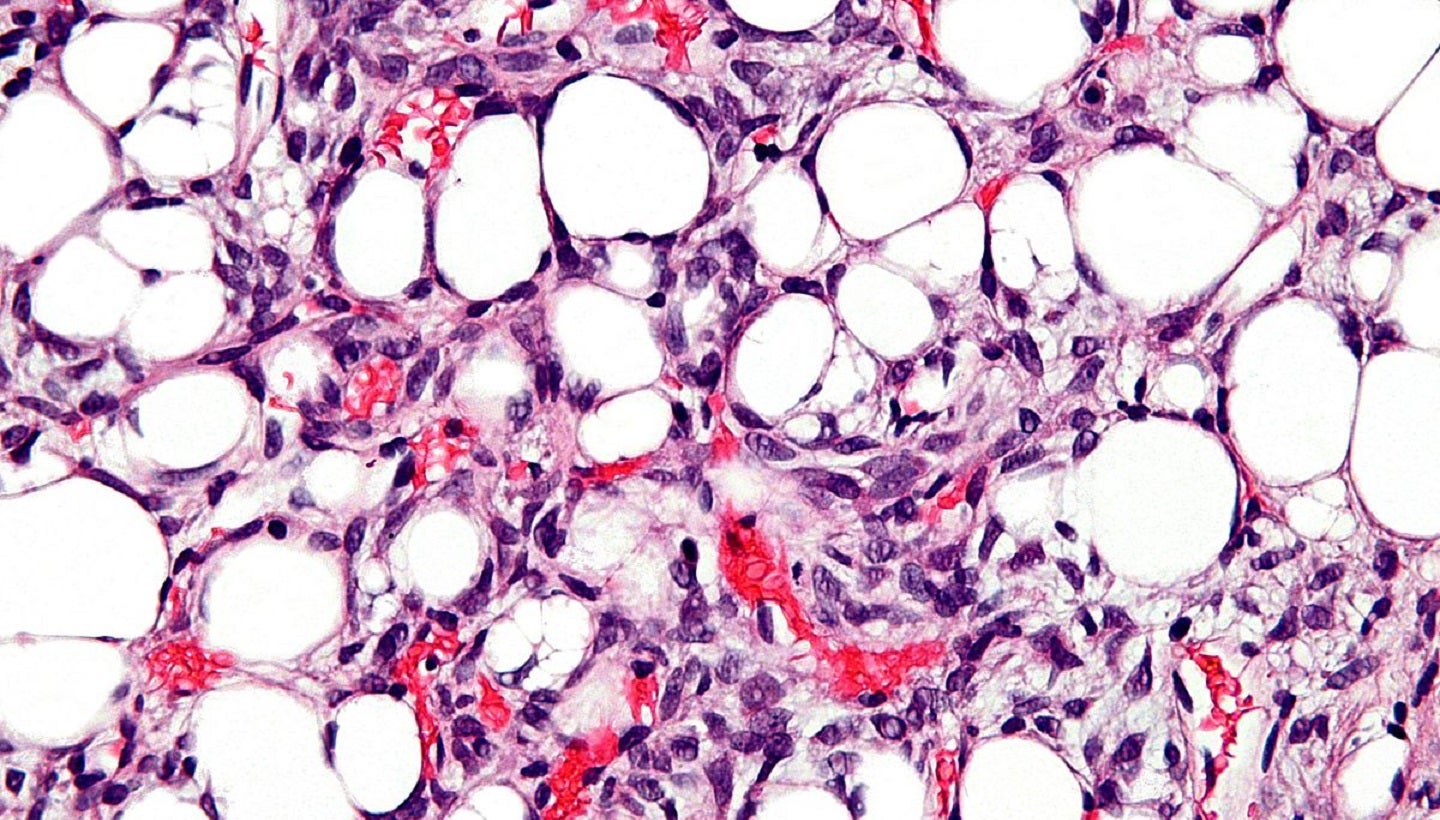
Rain Oncology has reported that the Phase III MANTRA trial of milademetan did not meet the primary endpoint of progression free survival (PFS) by blinded independent central review compared to trabectedin, a standard of care treatment for dedifferentiated (DD) liposarcoma (LPS).
Based on 115 events, the median PFS was 3.6 months for milademetan while it was 2.2 months for trabectedin.

Discover B2B Marketing That Performs
Combine business intelligence and editorial excellence to reach engaged professionals across 36 leading media platforms.
Nausea, thrombocytopenia, anemia, vomiting and neutropenia were the most common treatment emergent adverse events (TEAEs) observed in the milademetan treated group.
Further, Grade 3/4 TEAEs were also observed in the milademetan arm including neutropenia, anemia and thrombocytopenia.
Dose reductions in the milademetan arm and discontinuations in the milademetan arm due to AEs were observed as 44.2% and 11.6%, respectively, compared with trabectedin arm of 29.1% and 19.0%.
Rain Oncology co-founder and CEO Avanish Vellanki said: “We are very disappointed in the outcome of the MANTRA trial, as the results did not closely mirror prior clinical results in patients with DD LPS.

US Tariffs are shifting - will you react or anticipate?
Don’t let policy changes catch you off guard. Stay proactive with real-time data and expert analysis.
By GlobalData“We are truly saddened we will not likely be able to offer patients new treatment options for this challenging disease. However, the quality and robustness of the global MANTRA trial reflects an unambiguous data set.
“Based on the MANTRA topline results, we will also re-evaluate the path forward for milademetan. We continue to believe that reactivating p53is an important avenue to pursue as part of a treatment strategy across cancer.”
The trial enrolled a total of 175 patients to determine the safety and efficacy of milademetan against trabectedin.
The study’s secondary endpoints included overall survival, objective response rate, PFS by investigator assessment, disease control rate, safety and patient reported outcomes along with duration of response.





